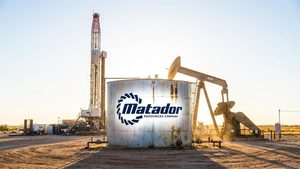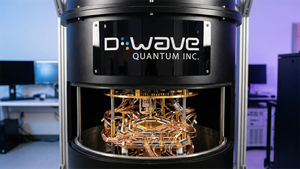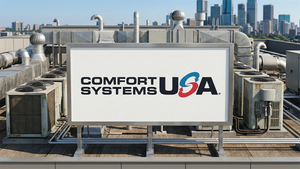By Meg Flippin Benzinga
DETROIT, MICHIGAN - August 13, 2025 (NEWMEDIAWIRE) - NRx Pharmaceuticals Inc. (NASDAQ: NRXP), a clinical-stage biopharmaceutical company developing therapeutics based on its NMDA platform for the treatment of central nervous system (CNS) disorders – specifically suicidal bipolar depression, chronic pain and PTSD – is hitting milestones, which is getting it noticed on Wall Street. Two investment firms recently reiterated buy ratings and price targets that are much higher than where NRXP is currently trading.

For good reason - NRX-100 and NRX-101 are the company’s two drugs in development for treating suicidal depression. According to the CDC, 13 million Americans contemplate suicide each year, 1.5 million attempt suicide and an American dies from suicide every 11 minutes. Soldiers, Veterans and First Responders have a four-fold greater risk of suicide.
The company’s two drugs in combination were granted Fast Track designation in 2017 by the FDA for treating suicidal bipolar depression, and NRX-101 was subsequently granted Breakthrough Therapy designation for the treatment of suicidal bipolar depression. Last week, the FDA granted Fast Track Designation to NRX-100 for the treatment of suicidal ideation in patients with all forms of depression, including bipolar depression. This expands the addressable population for NRX-100 tenfold. According to the company, several well-controlled trials submitted to the FDA in support of Fast Track Designation demonstrated a clinically meaningful and statistically significant reduction of suicidal ideation with NRX-100.
Of key significance is the FDA’s determination that NRX-100 meets an unmet medical need as the first drug to potentially treat suicidal ideation in depression. This scientific determination is a listed criterion for the award of a Commissioner’s National Priority Voucher (CNPV).
The company has submitted an application for the newly introduced CNPV, a pathway that offers a 1-2 day review for drugs that address a current U.S. Public Health Crisis, for which there is an unmet medical need, that reduce healthcare costs, and that bring innovative drug manufacture back to the United States. NRX-100 potentially meets each of those criteria, reports NRx Pharmaceuticals. The company has already been granted a $4.3 million PDUFA fee waiver by the FDA for this drug. The New Drug Application will be based on more than 1,000 participants treated in clinical trials funded by the U.S. Government and the Government of France, together with real-world data on more than 180,000 patients, which collectively demonstrate a large, statistically-significant reduction in depression and suicidality within a day of treatment with NRX-100.
In addition to seeking the specific use of NRX-100 to treat suicidal depression, the company has submitted an Abbreviated New Drug Application for NRX-100, which is a preservative-free intravenous (IV) ketamine formulation. The proprietary formulation is designed to be a safer alternative to existing ketamine preparations and avoid potential toxicity associated with preservatives found in current ketamine preparations designed for anesthetic purposes, reports the company.
The company is additionally filing a New Drug Application for NRX-101 as the first oral medicine to demonstrate a reduction in suicidality and akathisia in patients with bipolar depression.
Seeking An Edge Over Rivals
NRX-100 is the first preservative-free presentation of ketamine to be introduced for intravenous use. During its development phase, the company discovered that Ketamine could be manufactured and remain stable at room temperature without the preservatives that have been used since the drug was first formulated in the 1970s. Last week, NRx filed a Citizen Petition with the U.S. FDA, seeking the removal of benzethonium chloride (BZT) from all forms of ketamine sold in the United States. This class of preservatives has been removed from many eyedrops because of demonstrated toxicity to the conjunctiva and corneal nerves, and the FDA does not even allow its use in hand cleansers and topical antiseptics.
"At its introduction in the 1970s, ketamine was developed as an anesthetic and was never intended to be administered repeatedly to patients," said Dr. Jonathan Javitt, CEO of NRx Pharmaceuticals. "Ketamine is now widely used on a repeated basis as the only currently marketed drug that has shown benefit in treating suicidal depression and PTSD, although this is currently not a labeled indication. Hence, patients who receive intravenous ketamine on a repeated basis are exposed to a known toxic preservative with no evidence of safety.”
If the FDA grants the petition to remove BZT from ketamine products, it could give the company an edge, so much so that it prompted D. Boral Capital to reiterate its buy rating and $31 price target on the stock. In a research report, the investment firm argued that if the FDA granted NRx Pharmaceuticals’ Citizen Petition, it would require all manufacturers of BZT-containing ketamine to either reformulate or withdraw their products from the U.S. market.
“This would create an immediate competitive opening for NRx’s preservative-free ketamine formulation,” wrote the investment firm in a recent research report. “Should the petition be granted within the next year, and if NRx receives approval for its preservative-free ANDA, the company could establish a first-mover advantage in 2026. The combination of regulatory validation, manufacturing readiness and alignment with public health priorities could position NRx to dominate the preservative-free ketamine space as existing products are either withdrawn or modified.”
Carving Out A Therapeutic Arm
NRx is also getting attention from Wall Street for its HOPE Therapeutics subsidiary, which is a healthcare delivery company that is building what it says is a best-in-class network of interventional psychiatry clinics to offer ketamine, transcranial magnetic stimulation (TMS) and other lifesaving therapies to patients with suicidal depression and related disorders.
To enhance that unit, NRx has been making acquisitions of clinics, including the recent signing of contracts to purchase ten interventional psychiatry clinics in California and Florida. The clinic offers a full range of treatments for suicidal depression, PTSD and other CNS disorders, with treatments including ketamine, Spravato, Transcranial Magnetic Stimulation (TMS) and medication management. The acquisition should be immediately accretive to revenue and EBITDA, according to the company.
The combination of developing therapeutics for acute suicidal ideation and behavior and the integration of the therapeutics into the HOPE Therapeutics network is where investment firm BTIG thinks lies the value of the company. In a research report, BTIG said the drug development of NRX-100 and NRX-101 derisks the company’s story, given “significant data already exist supporting both their efficacy and safety” and that HOPE Therapeutics could eventually be spun out into its own independent company.
The way BTIG sees it, upcoming catalysts include NRx’s progress in completing the FDA submission for NRX-100 and NRX-101 and resulting FDA feedback, which BTIG said could lead to FDA approvals starting around the end of 2025. BTIG has a buy rating on NRx and just raised its price target from $18 to $21 per share.
From developing drugs to treat suicidal treatment-resistant bipolar depression to developing a network of clinics to offer ketamine, transcranial magnetic stimulation (TMS) and other lifesaving therapies to patients with suicidal depression and related disorders, NRx is making progress in treating a condition that impacts millions of Americans. That hasn’t been lost on some on Wall Street who are rating the stock a buy and predicting double-digit gains in its stock price, and the company is one to watch.
Featured image from Shutterstock.
This post contains sponsored content. This content is for informational purposes only and is not intended to be investing advice.
This content was originally published on Benzinga. Read further disclosures here.
View the original release on www.newmediawire.com





